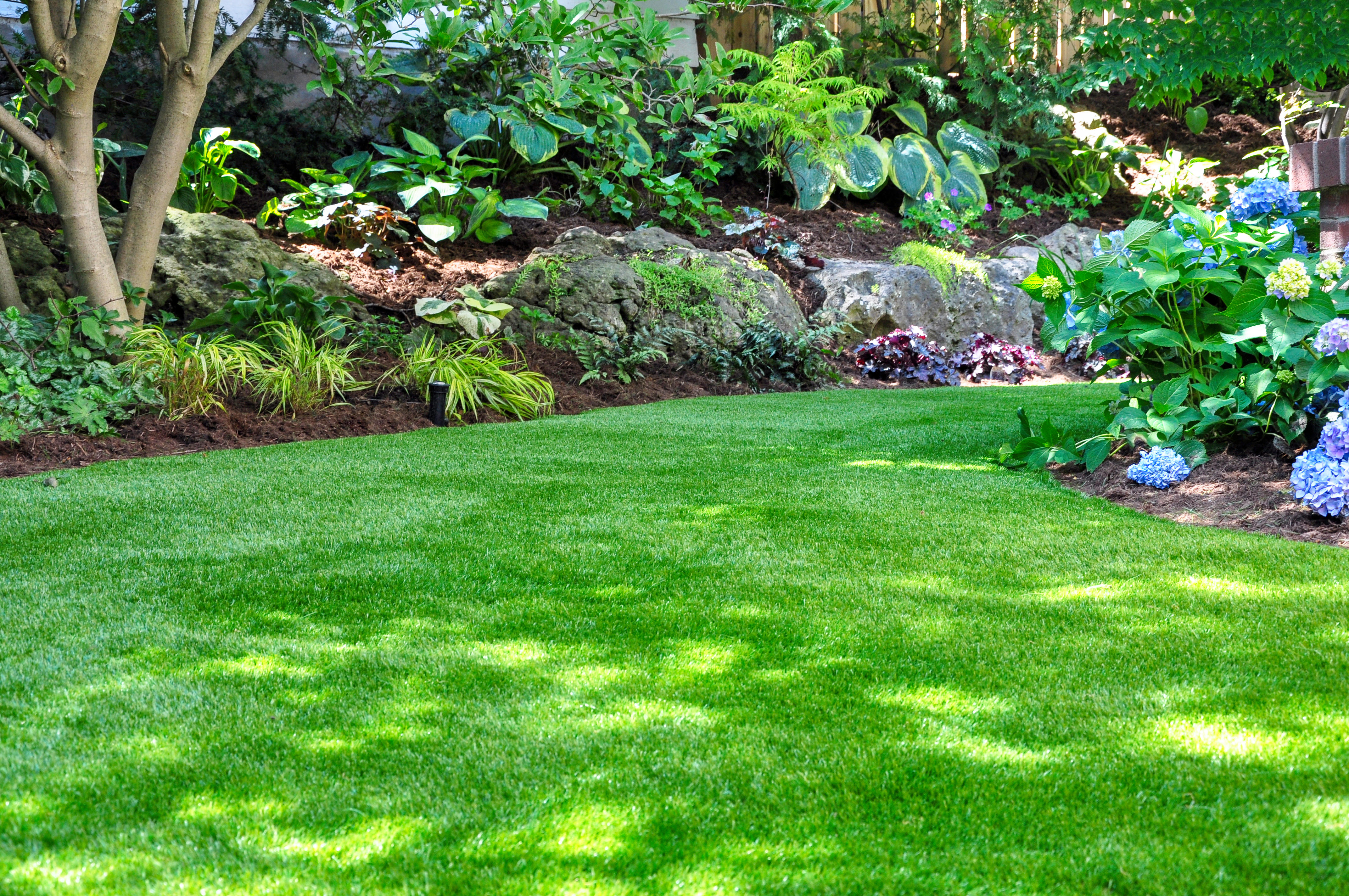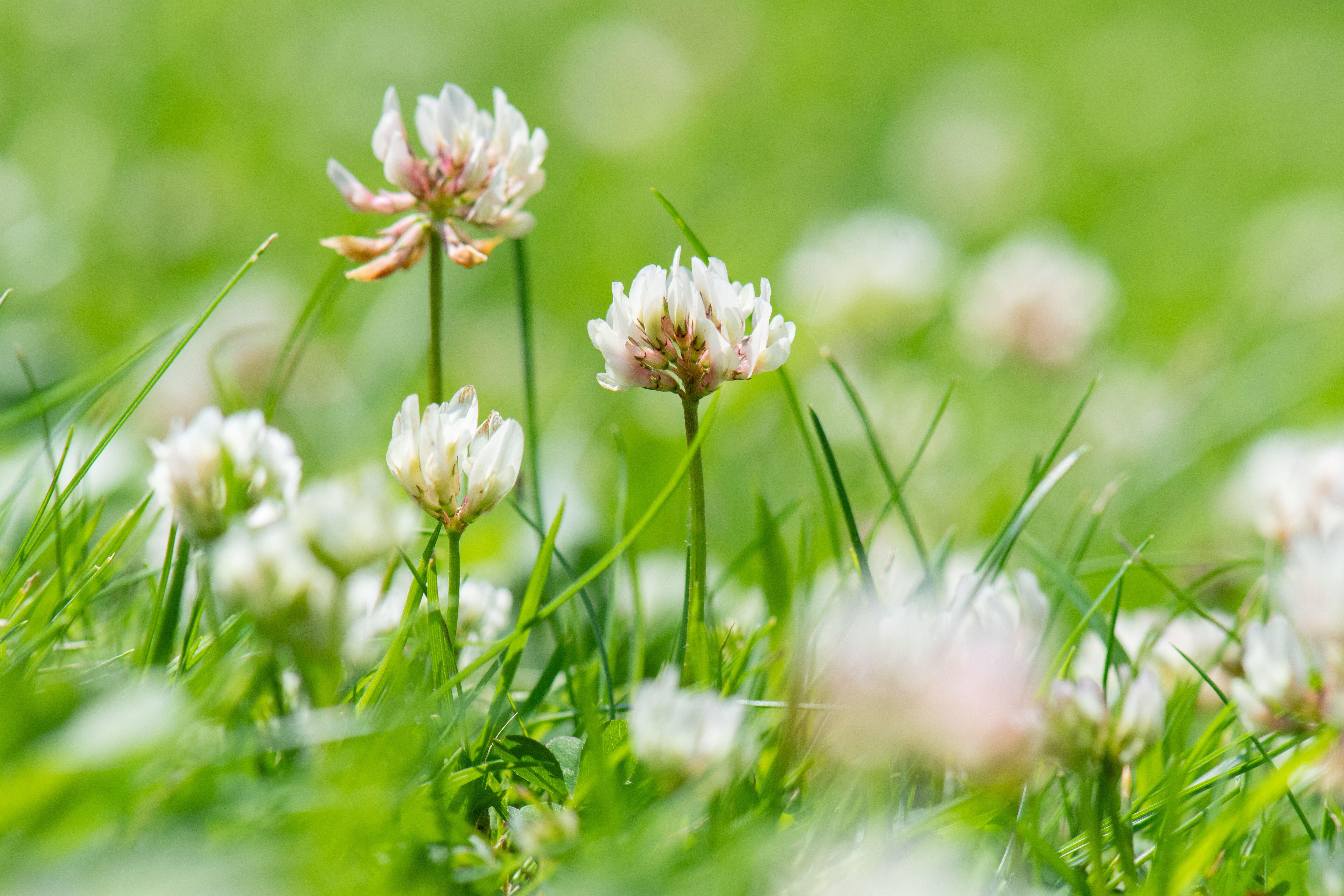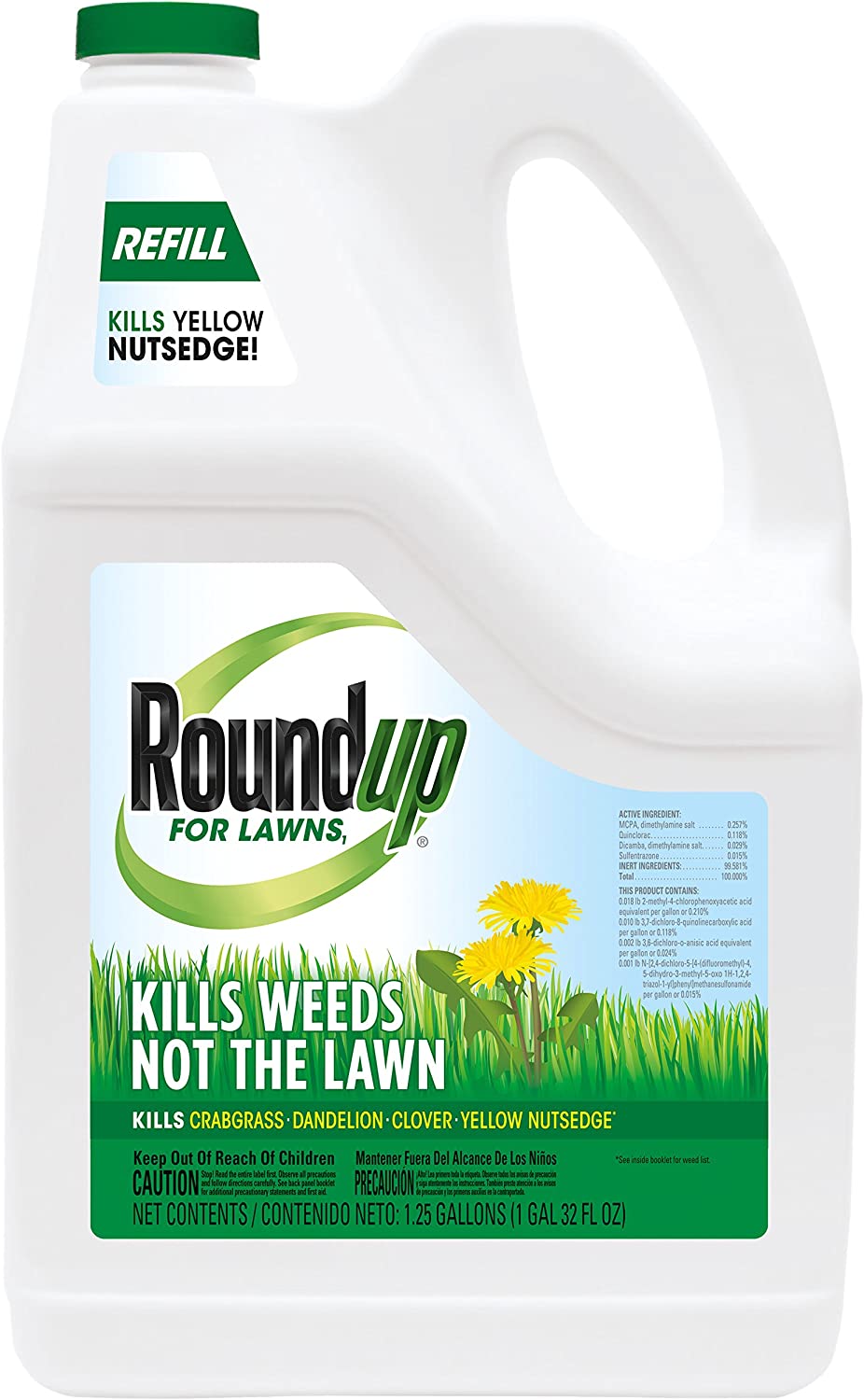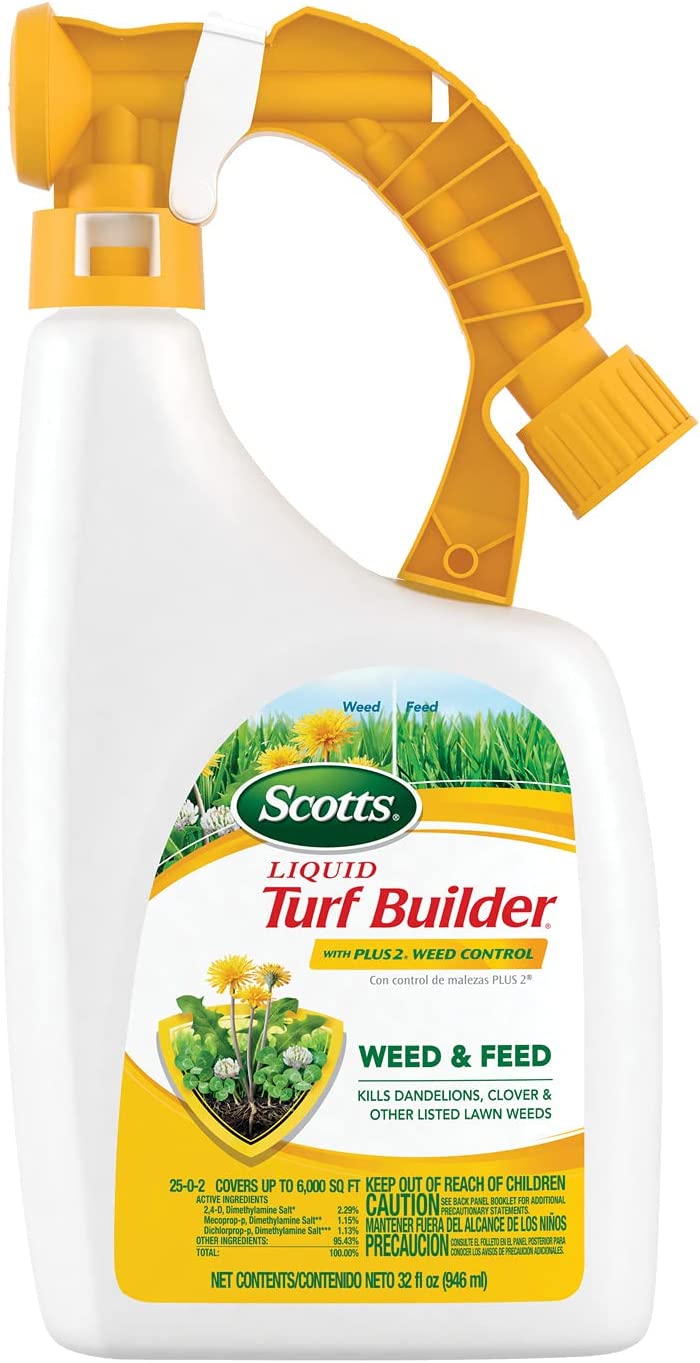"The time is now to deal with it!" Rid your lawn of clover with these wildlife-friendly gardener-approved tricks
It's common for clover to make a home for itself on your lawn this time of year, but these tips will help keep it at bay


The Livingetc newsletters are your inside source for what’s shaping interiors now - and what’s next. Discover trend forecasts, smart style ideas, and curated shopping inspiration that brings design to life. Subscribe today and stay ahead of the curve.
You are now subscribed
Your newsletter sign-up was successful
Spring's warmer weather is finally here, inviting us back out into our yards once more. If you're lucky enough to have one, there really is nothing better than sprawling out on your lawn in the sun with a good book, but look closely and you might find another, more unwelcome resident among your blades of grass. The culprit? Clover.
During the cooler temperatures of early spring, it's likely this dense crop has made a home for itself in your yard. Preferring moister conditions, clover commonly spreads its way across your lawn via underground stems called rhizomes only to crop up more visibly this time of year when longer and warmer days prevail. Some of us aren't bothered by the surfacing of these small, three-leaved perennials but for others, they're an unsightly weed that destroys their neatly kept lawn.
If you're in that latter camp, you might be looking for some ways to get rid of clover on your lawn. Luckily, we've got you covered. From quick and easy-to-use herbicides to more organic, holistic solutions, we've asked some professional gardeners and lawn care experts for their top tips on how to banish clover from your backyard once and for all.
Why do I have so much clover in my lawn?

If you're worrying why your lawn is ridden with clover, let us put your mind at ease. Clover is an extremely common weed that's very cold hardy and reasonably drought-resistant meaning it can pretty much survive in your lawn in any climate. In some gardens though, it's a lot more abundant...and some people actually welcome it! If you want to embrace it, our feature on how to care for a clover lawn will explain the benefits.
This can be down to a number of different reasons. 'A high presence of clover in your lawn is likely due to the fact that grass is struggling to compete with it,' explains Lindsey Hyland, gardening expert at Urban Organic Yield. 'Environmental stressors such as low fertility, excessive foot traffic/mowing, poor drainage, shade, or high soil pH are all additional reasons why you may end up seeing more clover than grass. Once these underlying issues have been addressed, eliminating existing clover will be much easier.' Clover is also a reliable indicator of nitrogen-deficient soil, as this is where the plant thrives best.
How to get rid of clover on a lawn
If the sight of clover is bad news in your outdoor space, you'll want to know the best methods for getting rid of it. Thankfully, our lawn care experts are on hand to offer their five best techniques.
1. Use a herbicide

By far the easiest and most effective way to get rid of clover is with a herbicide specifically formulated for clover control. These typically come in a ready-to-use formula that can be spread across your lawn, but it's important that you do your research to find one that's suitable for your grass so that it won't cause any damage to your lawn itself.
The Livingetc newsletters are your inside source for what’s shaping interiors now - and what’s next. Discover trend forecasts, smart style ideas, and curated shopping inspiration that brings design to life. Subscribe today and stay ahead of the curve.
'After applying the herbicide, make sure to water your lawn thoroughly and check back regularly to ensure that all clover has been eliminated,' says Lindsey. 'If any clover persists, you may need to reapply the herbicide at a later date.'
If wildlife gardening is a priority for you meaning heavy-duty weed killers aren't an option, you can use vinegar as a natural and effective way to kill clover instead. 'Mix proportional parts of vinegar and water in a spray bottle and apply it directly on the clover leaves,' says Robert Silver, owner of Pro Gardening Blog. 'Applying corn gluten meal to your lawn in the spring before clover seeds germinate can also help prevent clover growth.'
2. Over-seed (or re-seed) your lawn
If you want to steer away from any form of weed killer completely, there's a tried and tested trend of overseeding you could give a go. What is overseeding? This is a more organic-friendly method of keeping clover at bay. This essentially just involves adding extra grass seed to your existing lawn alongside aerating so that healthy new grass sprouts up. 'It's worth noting that overseeding will not get rid of clover completely, but it could help with thickening up your lawn and making clover less competitive,' notes Eric DeBoer, an agronomist at Simple Lawn Solutions.
Re-seeding works in a similar way and should be used if you're left with large, patchy areas of soil after using a herbicide to kill clover. 'This involves overseeding bare patches in your lawn with grass seed, which can help fill in areas where clover has been reduced,' says Robert.
'A dense, healthy lawn is less susceptible to weed growth and is better able to withstand stress from factors like foot traffic and weather conditions,' he adds. 'It should be used alongside regular lawn care practices like mowing, watering, and fertilizing to also help promote healthy grass growth and prevent clover from returning.'
3. Use a nitrogen rich fertilizer

As touched upon, clover thrives in nitrogen-deficient soil. If you find that its growth is a persistent issue, you should consider adjusting the concentration of nitrogen in your soil by adding a fertilizer high in nitrogen to help inhibit it. 'This will not only deter clover growth but can also help your grass grow healthy and strong,' says Scott Riley, owner of 4-Evergreen Lawn Service.
When selecting a fertilizer, make sure to do your research. 'It's important to choose one that is appropriate for the type of grass, climate, and soil conditions in your lawn,' Robert explains. 'Following the instructions carefully - applying the fertilizer at the recommended rate and frequency is critical to avoid over-fertilization, which can lead to excessive growth, nutrient imbalances, and water pollution.'
4. Increase sunlight and avoid overwatering
If your small backyard is particularly shady, it might be worth considering increasing the amount of sunlight it gets (if you can, of course). As Robert explains: 'Clover thrives in shady areas, so trimming overhanging trees and shrubs can reduce clover growth by increasing sunlight.'
One of the reasons clover likes shade is down to the fact it prefers moister conditions. If you're regularly putting the sprinkler on to water your lawn even though your climate receives enough rainfall, this could be the root cause of the clover in your garden. 'Instead, water your lawn deeply and infrequently to encourage deep root growth and prevent clover,' says Robert.
5. Embrace the clover instead

Finally, if you're not up for battling clover using one of the techniques above, you could always just embrace it instead. Clover lawns are considered a cheaper, easier, and more low-maintenance alternative to grass as they don't require regular watering (and in some climates, no watering at all).
As well as being more sustainable, they're far more eco-friendly too. The pretty spectacle of flowering clover invites many beneficial garden insects, including pollinators like bees, into your backyard. It could even make your turf healthier, too. As Robert notes: 'Clover has benefits like nitrogen fixation and soil aeration, making it a popular choice in some lawns.'
When should I treat my lawn for clover?
With summer just around the corner, it's understandable that you'd want to rid your lawn of clover in time for the height of the season. The good news is, now is the ideal time to do so.
'Manual removal can be done at any time, but herbicides are best used during the active growing season (until around late spring),' explains Robert. 'The treatment method you choose must be well-suited to your lawn's specific needs and conditions, however, such as soil type, climate, and grass type.'
If you do use a herbicide, you should be prepared to reapply it after several weeks if you still notice clover. 'When treating your lawn, it's also important that you follow all instructions on the label and take extra precautions to protect yourself and your pets,' says Lindsey.
With these techniques, you can finally say goodbye to clover and have the neat and tidy lawn of your dreams just in time for summer (or not, as the case may be - if you decide the let the clover stay, that is!).

Lilith Hudson is a freelance writer and regular contributor to Livingetc. She holds an MA in Magazine Journalism from City, University of London, and has written for various titles including Homes & Gardens, House Beautiful, Advnture, the Saturday Times Magazine, Evening Standard, DJ Mag, Metro, and The Simple Things Magazine.
Prior to going freelance, Lilith was the News and Trends Editor at Livingetc. It was a role that helped her develop a keen eye for spotting all the latest micro-trends, interior hacks, and viral decor must-haves you need in your home. With a constant ear to the ground on the design scene, she's ahead of the curve when it comes to the latest color that's sweeping interiors or the hot new style to decorate our homes.

